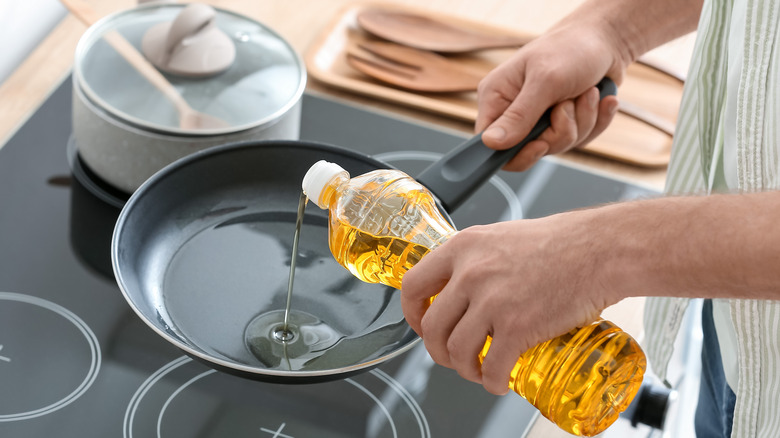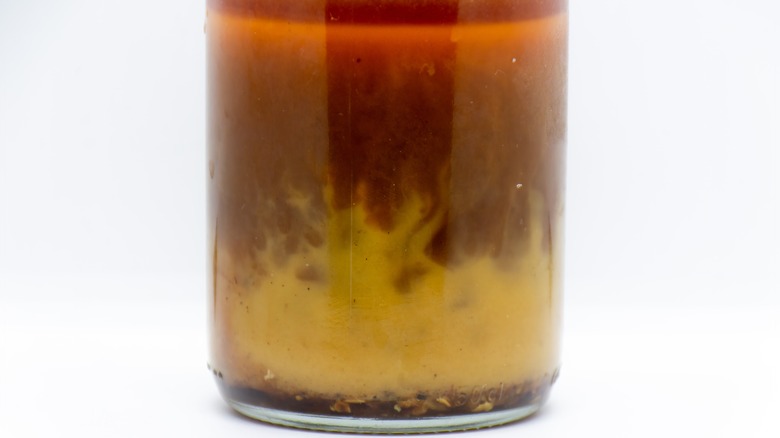The Genius Way To Clean Used Frying Oil That You Never Knew About
We think it's safe to say that some of the best things in life are fried. A warm piece of golden brown fried chicken is one of the definitions of joy. Tempura fried anything is never not delicious. The list of foods that you can fry or that are better fried is long, and if you've taken on the task of frying your food at home, we commend you. The process itself is pretty straightforward if you know what you're doing, but it does require a little bit of time and a close eye.
If you can handle carefully heating the oil to just the right temp and being mindful of the splatter, the world can be your fried oyster. Frying is a relatively inexpensive method of cooking things and once you've got the hang of it, it's fairly easy. But frying things at home, especially if you're doing it a lot, means you've got to deal with the hassle of the oil each time you're done. HuffPost says it can't go down the garbage disposal, and it probably shouldn't be poured into a garbage bag either. And what about cleaning out all the tiny burnt bits from last week's chicken dish?
How to get all the chunks out
Even though kitchen oils aren't overly expensive, it makes sense to use the same batch of oil for a few different meals. That said, each time you fry something you're going to get little tiny bits of whatever it is you're cooking up. Rather than trying to sift through a big vat of oil with a fork, a mesh ladle, or even pouring it through coffee filters, what if you could get rid of all the chunks with one easy action?
We have to admit, our minds were blown when we heard about using gelatin to clean out cooking oil. What you'll need are unflavored gelatin (not flavored Jell-o) and water. After using your oil, let it cool to room temp or just slightly warmer. With another small pot, heat up some water, about ½ cup per quart of oil you want to clean. Simmer the water and stir in your gelatin, 1 tsp per ½ cup of water, until it's completely dissolved. Then, mix the gelatin mixture with the warm oil, being sure to vigorously stir the entire time. You can transfer it to another container at this point, or leave it in the pot, but place the whole thing in your fridge overnight. The next morning, pour the oil into whatever container you'd like to store it in and discard the disk of gelatin containing all the chunks you don't want. Voila!
How to re-use oil
Once you've gotten your oil nice and clean, you're free to reuse it as many times as you'd like, but note that it won't last forever. After several cleanings and depending on what you've been cooking up, the oil will only get so clean. It will start to take on the flavor of what you've been frying, like fish, and it will start to degrade over time (via The Washington Post).
Once your oil has completed its final mission, you have a couple of options for disposal. If you're getting rid of a relatively small amount of oil or grease, McGill Compost says you can add it to your compost pile. Large amounts can slow down the composting process, though, and should be disposed of in a different way. Our favorite and the easiest? Let the oil cool, pour it into a recycled jar like a washed-out tomato sauce or pickle jar, and then throw it away in the trash.


